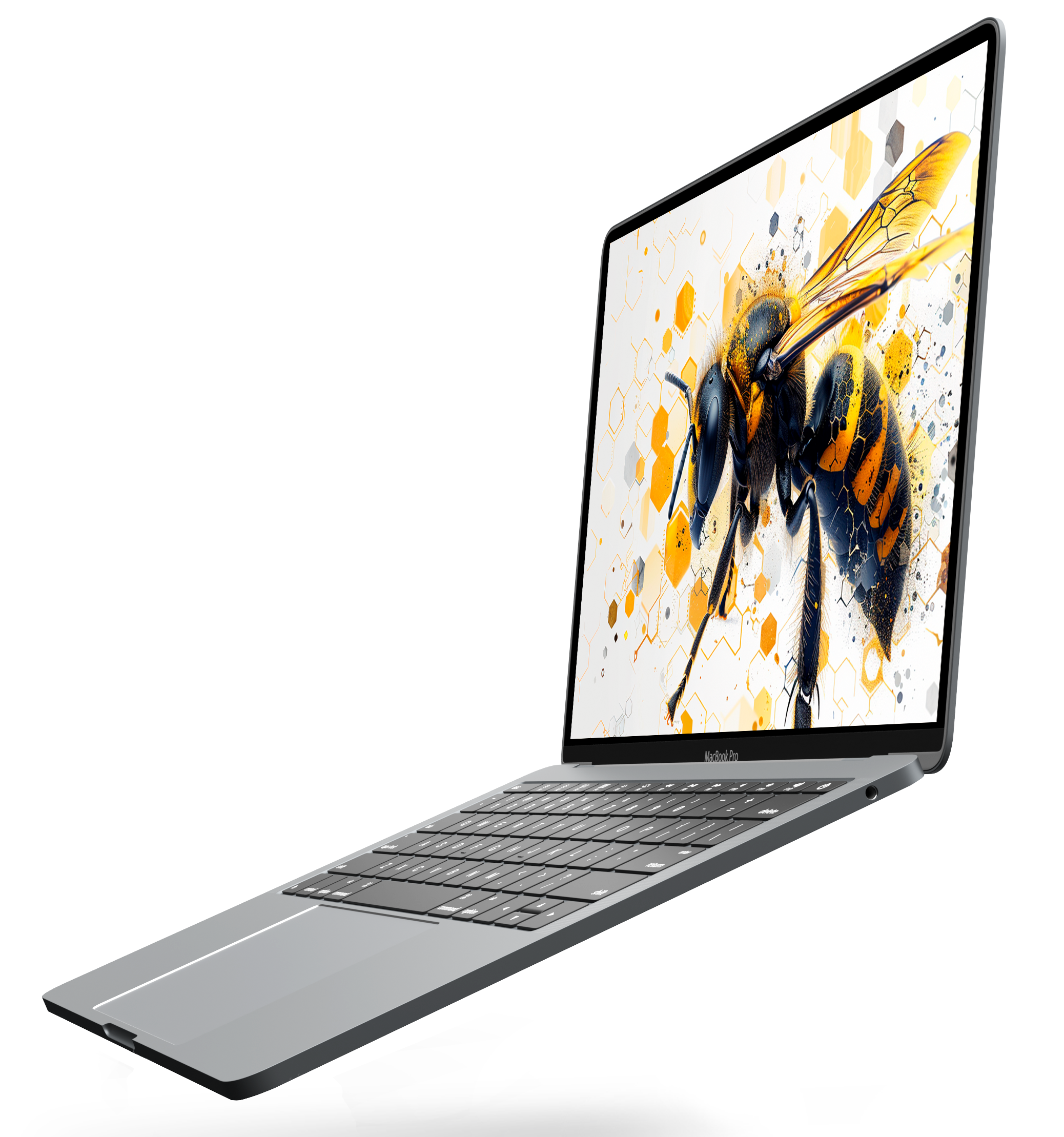Customize for your needs
Modular OS Architecture
Linux’s modular architecture allows you to build a system that meets your specific needs, removing unnecessary features and improving performance.

Build your system your way
Modular System Architecture for Customization
Linux’s modular architecture allows users to customize their operating system by selecting only the components they need. Unlike Windows and Mac, which offer a fixed set of features, Linux users can optimize their system for performance and efficiency. This flexibility results in a lean, tailored experience.
By choosing specific components, users can remove unnecessary features that slow down the system, resulting in better performance. This modularity also enables Linux users to create a system that meets their unique needs, whether for development, gaming, or secure communication. Flexibility and control are at your fingertips with Linux.
Customize for your requirements
Tailored Operating System for Individual Needs
Linux’s flexibility allows users to create an operating system that is perfectly suited to their individual requirements. Whether you need a lightweight system for an older device or a robust platform for development, Linux’s modular architecture lets you build exactly what you need without unnecessary extras.
Unlike Windows and Mac, where the system is designed as a one-size-fits-all solution, Linux empowers users to craft their own experience. This tailored approach ensures that every aspect of your operating system meets your personal or professional needs, making Linux the ideal choice for those seeking customization.
Optimize Performance
Modular Design
Linux’s modular design allows you to customize your system, removing unnecessary components and improving performance for a more efficient computing experience.
Linux lets you optimize performance by selecting only the components you need, reducing system bloat and enhancing efficiency.
Tailored OS
With Linux, you can create a tailored OS that meets your specific needs, ensuring a perfect fit for your personal or professional use.
Remove Bloat
Remove unnecessary features with Linux’s modular architecture, simplifying your system and improving both performance and security.
Enhanced Security
Linux’s modular design enhances security by reducing vulnerabilities, allowing you to install only the components you need.
Freedom to Innovate
Linux’s flexibility encourages innovation, enabling users to experiment, customize, and push the boundaries of what their OS can do.
Secure by design
Enhance System Security with Modularity
Linux’s modular architecture enhances security by allowing users to install only the components they need. This reduces the system’s attack surface compared to Windows and Mac, where numerous unnecessary features increase the risk of vulnerabilities. With Linux, less is more when it comes to security.
By minimizing the installed software, you can reduce potential entry points for attacks. Linux’s flexibility ensures that your system remains secure and efficient, tailored to your specific security requirements. The modular design is ideal for users who prioritize both performance and protection in their operating system.
Control what’s on your system
Remove Unnecessary Features
Linux’s modular system architecture allows users to remove features they don’t need, freeing up resources and simplifying the user interface. This contrasts with Windows and Mac, which often include unnecessary features that clutter the system and reduce efficiency. With Linux, you’re in control of what’s installed.
Removing unnecessary features not only improves performance but also enhances security by reducing the number of potential vulnerabilities. By customizing your system, you can ensure that it runs faster, smoother, and more securely, without the distractions of unused software. Linux lets you take control of your operating system.
Flexibility for teamwork
Collaborative Customization
Linux’s modular architecture allows teams to customize their systems according to project needs, ensuring that every team member has a setup optimized for collaboration and efficiency. This flexibility supports diverse workflows.
Linux’s modular design enhances collaborative security by allowing teams to install only the tools they need. This approach reduces vulnerabilities and ensures that the system remains secure during joint efforts. Collaboration is safer when security is built in from the ground up.
Modular Security in Collaboration
Linux’s modular design enhances collaborative security by allowing teams to install only the tools they need. This approach reduces vulnerabilities and ensures that the system remains secure during joint efforts. Collaboration is safer when security is built in from the ground up.
Streamlined
The modular architecture of Linux enables streamlined project workflows by allowing teams to focus on essential tools. Removing unnecessary features reduces clutter, making it easier for team members to stay on task and collaborate effectively.
Custom Workspaces for Teams
Linux’s modularity allows teams to create custom workspaces that suit their specific collaboration needs. Each team member can configure their environment to match their role, enhancing overall productivity and satisfaction.
Innovation in Team Projects
Linux’s modular architecture fosters innovation in team projects by allowing members to experiment with different tools and configurations. This freedom encourages creative solutions and the development of new ideas, driving project success.
Secure, customized teamwork
Customizing the operating system for specific tasks minimizes potential security risks, allowing teams to work confidently. Linux’s modular architecture ensures that your collaborative environment is both secure and tailored to your project’s unique requirements.
Efficiency through modularity
This efficiency leads to faster project completion and fewer distractions. Linux’s flexibility ensures that your team has exactly what they need to succeed, with no excess software to slow them down. Collaborative projects benefit from a leaner, more focused system.
Tailored for collaboration
Tailored workspaces mean that everyone has the tools they need at their fingertips, improving collaboration and reducing time spent searching for features. Linux’s flexible architecture supports a seamless, collaborative workflow, making it easier for teams to work together efficiently.
Create and innovate freely
Teams can test and implement new strategies without the constraints of a rigid system. Linux provides the flexibility to adapt to changing project needs, ensuring that your team remains at the forefront of innovation and collaboration.
Explore new possibilities
Freedom to Experiment and Innovate
Linux’s modular architecture encourages experimentation and innovation by allowing users to easily modify their system. Whether you’re a developer looking to create custom software or a power user wanting to explore new configurations, Linux provides the flexibility to experiment without the restrictions found in Windows or Mac.
This freedom to innovate is a key advantage of Linux. Users can test new ideas, customize workflows, and create unique setups that enhance productivity. With Linux, the possibilities are endless, making it the perfect platform for those who want to push the boundaries of what their operating system can do.

Learn More
Frequently Asked Questions
How does Linux’s modular architecture benefit users?
Linux’s modular architecture allows users to customize their system by choosing only the components they need, reducing bloat and improving performance.
Can I improve performance by using Linux’s modular design?
Yes, Linux’s modular design lets you remove unnecessary features, optimizing your system for better performance and efficiency.
How does Linux’s modularity enhance security?
By allowing you to install only the necessary components, Linux’s modular design reduces the attack surface, enhancing system security.
Can I create a tailored operating system with Linux?
Absolutely, Linux’s modular architecture allows you to build a system that meets your specific needs, whether for personal use or professional tasks.
How does Linux encourage experimentation and innovation?
Linux’s flexibility allows users to modify and customize their system freely, encouraging innovation and exploration without the limitations of proprietary OSes.

















